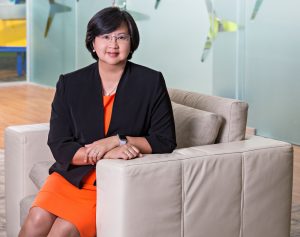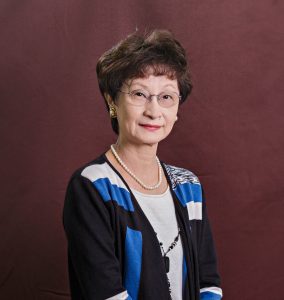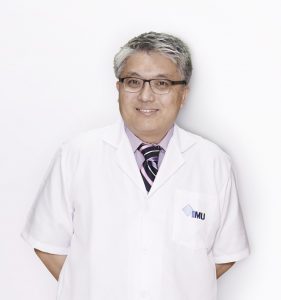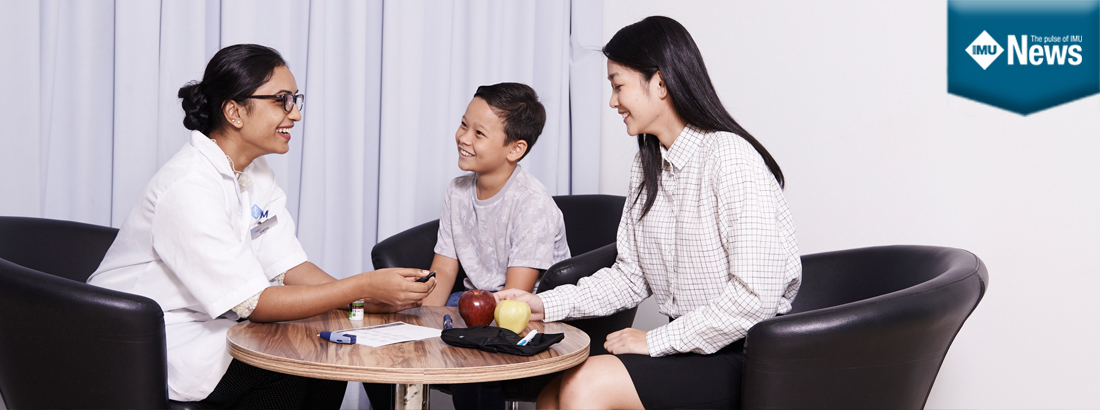Diabetes is Asia’s ‘Silent Killer’ and more than a third of adults above the age of 30 in Malaysia would have developed diabetes by 2020. People with diabetes need to manage their disease and this affects many aspects of their daily life – healthy eating, physical activity, monitoring of blood sugars, taking medication and reducing risk of diabetes related complications. In order to help patients manage diabetes better, healthcare professionals specialise as diabetes educators. Diabetes educators may be from different clinical disciplines: Registered Nurses, Assistant Medical Officers, Dietitians, Podiatrists, Pharmacists, Doctors, Clinical Psychologists or Physiotherapists. In Malaysia, there is a low ratio of diabetes educators to people with diabetes because training opportunities are insufficient with a lack of training centres that offer diabetes educator training at the degree level.
The Diabetes Management and Education programme at the International Medical University (IMU) provides training at the postgraduate diploma level to healthcare providers who provide diabetes care. This programme is the highest qualification of its kind in this region and modelled against international curriculum.
This programme has a flexible curriculum designed to fit into the working adult lifestyle. Students can choose to complete the programme within 1 year as a full-time student or within a maximum period of 3 years as a part-time student. This course uses a blended learning model that incorporates online learning, clinical practicum at the student’s place of work, and a maximum of one week spent per semester learning at the university campus. This delivery allows the student to maximise learning anywhere and anytime. There is no end-of-semester examination and students will be assessed via a 100% in-course activities that include individual assignments, group activities and face-to-face assessments. 6 modules are offered that cover the necessary competencies for a health care professional to grow a career for the future diabetes care workplace. The course takes a holistic approach to managing diabetes that include clinical and behavioural aspects for different types of diabetes and different populations including children, adolescents, adults, the elderly and pregnant women. Students will also learn how to develop teaching plans, implement quality diabetes education for patients and their caregivers, and evaluate the effectiveness of the education session. Students also learn how to conceptualize the research process and apply critical thinking skills to improve diabetes care. The competencies imparted in this programme include skills to provide personalised education, support and solutions for people with diabetes and their caregivers. The graduates of this programme will also be able to help the community they engage with through the coordination and advocacy of diabetes care. This programme also equips its graduates with the ability to independently seek new knowledge and skills to continuously improve diabetes care delivery. Teaching and learning is delivered and supervised by highly qualified and experienced local and international specialists from the multidisciplinary areas of diabetes care, and extends beyond the provision of education to include theory, research, and the educator role into professional practice to generate individualised self-management solutions for people with diabetes. Some of the prominent experts teaching in this programme are
| IMU Faculty | Guest Faculty |
|---|---|
| Prof Dato’ Dr Sivalingam Nalliah (Obstetrics and Gynaecology) | Prof Dato’ Dr Mafauzy Mohamed (Senior Consultant Endocrinologist) |
| Prof Winnie Chee Siew Swee (Dietitian) | Prof Trisha Dunning (Credentialed Diabetes Educator) |
| Dr Loh Vooi Lee (Consultant Endocrinologist) | Prof Wu Loo Ling (Senior Consultant Paediatric Endocrinologist) |
| Dr Tan Ming Yeong (Credentialed Diabetes Educator) |



 The inaugural intake for this programme is in March 2019. All students for the inaugural intake in 2019 of this programme will receive a 10% tuition fee bursary.
The inaugural intake for this programme is in March 2019. All students for the inaugural intake in 2019 of this programme will receive a 10% tuition fee bursary.









